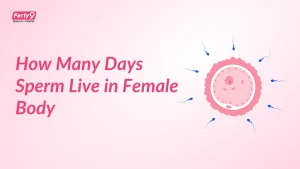Female infertility plays a vital role in childbearing. Female fertility causes are several and need to be considered in their proper perspective.
Infertility is indeed defined as trying to get pregnant with frequent, unprotected sex for at least a year with no success. Female fertility is of utmost importance.
Infertility does result from female factors about one-third of the time and both female as well as male factors about one-third of the time. The cause is either unknown or even a combination of male as well as female factors in the remaining cases.
Female infertility causes are difficult to diagnose. There are several treatments, depending on the infertility cause. Several infertile couples will go on to conceive a child without treatment.
Female fertility causes
For pregnancy to occur, every step of the human reproduction process take place properly. The steps are:
- One of the two ovaries releases a mature egg.
- The egg is rather picked up by the fallopian tube.
- Sperm swim up the cervix, via the woman’s uterus, and into the fallopian tube to reach the egg for fertilization.
- The fertilized egg does travel down the fallopian tube to the woman’s uterus.
- The fertilized egg attaches (implants) to the inside of the woman’s uterus and does grow.
Solutions
For women planning to get pregnant soon or in the future, these tips can help:
- Maintaining a healthy weight – Overweight and also underweight women are at increased risk of ovulation disorders. Exercising moderately helps. Strenuous, intense exercise of more than five hours a week has indeed been associated with decreased ovulation.
- Quit smoking – Tobacco has multiple negative effects on fertility, as well as one’s general health and the health of a fetus. If a person smokes and considering pregnancy, quit now.
- Avoid alcohol – Heavy alcohol use can rather lead to decreased fertility.
- Reduce stress – Stress can cause couples to have poorer results with infertility treatment. Trying to reduce stress in one’s life before trying to become pregnant.
Ovulation disorders
Ovulation infrequently or not accounts for most cases of infertility.
Polycystic ovary syndrome (PCOS)
Polycystic ovary syndrome (PCOS) does cause a hormone imbalance, which affects ovulation.
Hypothalamic dysfunction
Two of the hormones produced by the pituitary gland are responsible for stimulating ovulation each month — follicle-stimulating hormone (FSH) as well as luteinizing hormone (LH). Excess physical or even emotional stress, a very high or very low body weight, or a recent substantial weight gain or loss can indeed disrupt the production of such hormones and affect ovulation.
Primary ovarian insufficiency
Also referred to as premature ovarian failure, and is usually caused by an autoimmune response or by premature loss of eggs from one’s ovary, possibly as a result of genetics or chemotherapy. The ovary no longer produces eggs, and it does lower estrogen production in women under age 40.
Too much prolactin
The pituitary gland can indeed lead to excess production of prolactin (hyperprolactinemia), which reduces estrogen production and thus causes infertility. Medications can cause this condition.
Damage to fallopian tubes (tubal infertility)
Damaged or even blocked fallopian tubes keep sperm from getting to the egg or block the passage of the fertilized egg into the woman’s uterus.
Endometriosis
Endometriosis does occur when tissue that typically grows in the uterus implants and then grows in other places. This extra tissue growth and the surgical removal of it can cause scarring, which can block fallopian tubes and also keep an egg and sperm from uniting.
Uterine or cervical causes
Several uterine or cervical causes can interfere with the egg implanting or increase the risk of miscarriage. At times, the cervix is not able to produce the best type of mucus to allow the sperm to travel via the cervix into the uterus.
Unexplained infertility
In few cases, causes are not known about infertility.




























